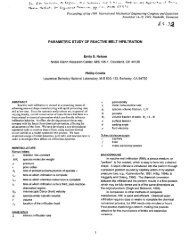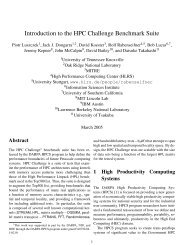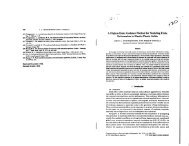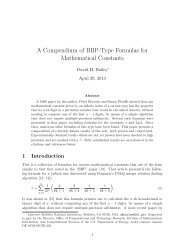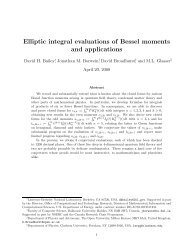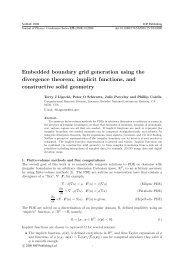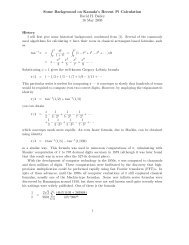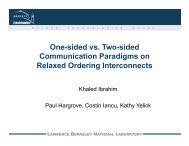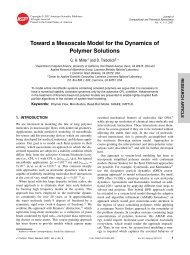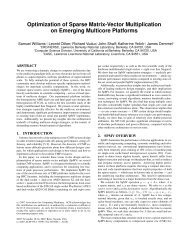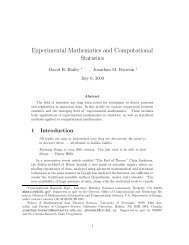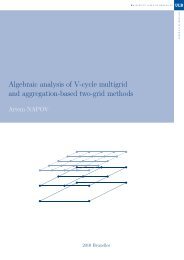High-Order, Finite-Volume Methods in Mapped Coordinates
High-Order, Finite-Volume Methods in Mapped Coordinates
High-Order, Finite-Volume Methods in Mapped Coordinates
You also want an ePaper? Increase the reach of your titles
YUMPU automatically turns print PDFs into web optimized ePapers that Google loves.
Magnitude of Amplification FactorRelative Phase Speed10.99σ=1.00σ=0.75σ=0.50σ=0.2510.80.6|g|0.98α/a0.40.970.20.960 0.5 1θ/π00 0.5 1θ/πFig. 7. Variation of the magnitude of the amplification factor |g| and the relativephase speed α/a with phase angle θ for several values of σ. Note that as θ → ±π,the damp<strong>in</strong>g vanishes and the modes do not propagate. Furthermore, the phaseerror is effectively <strong>in</strong>dependent of σ.where the discrete phase angles are θ id = 2πi d /n, i d = 0, ±1, ±2, . . . , ±n/2.Because of the central spatial discretization, the eigenvalues are all pure imag<strong>in</strong>ary,that is, the spatial discretization contributes no numerical dissipation.The magnitude of the amplification factor as a function of cont<strong>in</strong>uous phaseangles is( )|g| = √ 1 − y61 − y2. (80)72 8For D = 1, this is plotted <strong>in</strong> Figure 7. Similarly, the relative phase speed ofthe one-dimensional scheme,α(θ)a= − 1 Im g(θ)σθ Re g(θ) , (81)where σ = a∆t/h, is also plotted <strong>in</strong> Figure 7. We see that the Runge Kuttascheme adds a small amount of dissipation and that, as θ → ±π, this dissipationvanishes. At the same time, we see that these high-wavenumber modes(grid modes) do not propagate. For variable-coefficient and nonl<strong>in</strong>ear problems,these undamped grid modes can pollute the solutions, if not cause <strong>in</strong>stability.4.3 Limit<strong>in</strong>gOne approach to stabilize a high-order, no- or low-dissipation scheme forvariable-coefficient or nonl<strong>in</strong>ear hyperbolic problems is to add artificial dis-23



